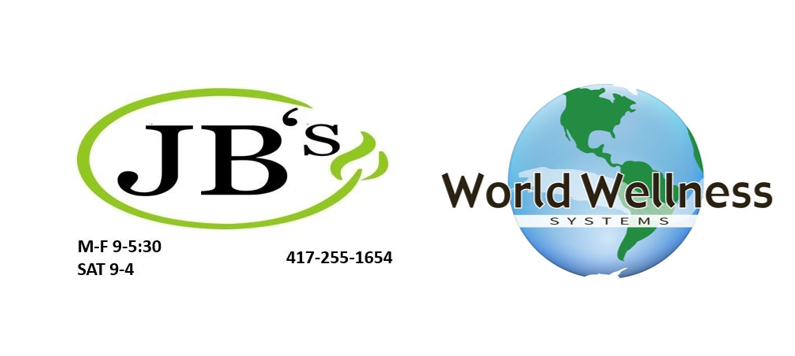With growing demand for nutritional supplements, there are literally thousands of products on the market with countless new brands ever trying to breach this lucrative industry.
If you're like the majority, you may just be standing there scratching your head, wondering "What's the difference?" Many people simply want to cut the crapola and get down to business - Which are the best supplements to take?
The thing is, it's not just about which products are the best but which are also the safest and most effective. Some sources are a complete rip-off at best and flat toxic at worst. In fact, GNC, Target, Walgreens and Walmart have been implicated by New York's Attorney General and others for selling fraudulent supplements. As their report stated, these supplements were found "to be fake or highly adulterated and contaminated."
I get it. It can be easy to get sucked in by crafty sales pitches and deep "discounts" that make you feel like you're getting a really good bang for your buck. Quite frankly, we're sick of you being cheated and lied to.
Here are some of the things that we look for in selecting top quality products to help you realize your greatest health ambitions.
Nutrient Form
Calcium is calcium. Right? Wrong!
If you've ever checked the back of the bottle, you may have noticed that many nutrients have parentheticals next to the nutrient. For example, the bottle might say "Potassium (as potassium aspartate)"
Read labels carefully to see what nutrient forms are included.
For some nutrients, such as Vitamin E and beta-carotene, you want to make sure you're getting natural, not synthetic, forms.
Minerals also come in various forms. Elemental minerals, such as those found in soil, are not readily absorbed, so manufacturers typically bind them to amino acids or other substances that our bodies are able to take in. These are known as "chelated" minerals, and have names such as "Magnesium Biglycinate Chelate" on the back label.
In general, most forms of minerals are acceptable, but there are some differences in bioavailability based on your health status. The most common form of calcium--calcium carbonate--for example, is found in many supplements because it's cheap though it isn't well absorbed by most people, especially those who are deficient in hydrochloric acid.
Quality supplements from quality sources are key for getting top value for your dollar.
Dosage Level
Once you've determined which form you're looking for, you'll want to check the label for dosage level. On the surface, Bottle A containing 60 caps for $20 may seem a better buy than Bottle B containing 30 caps for $18. However, if the dosage for Bottle A is 2 caps daily and Bottle B's is 1 daily, B may actually the better buy.
Be sure to check the dosage - serving size and amount per serving, as well as the suggested use (whether you should be taking it once, twice or thrice a day...). You want to make sure the product has enough of the active ingredients or nutrients to actually improve your health.
For example, an arthritis supplement may boast a slew of excellent ingredients, including 500 mg of glucosamine sulfate. This may sound great until you learn clinical trials have shown that the amount of glucosamine sulfate needed to produce a beneficial effect is actually three times that --1,500 mg. So, in reality, it's not going to do you much good unless you're taking more of it to bridge the gap.
Some products boast a wide range of really good ingredients, leading you to believe you've really got all you need right there in that one bottle. However, when you look at the labels, you may find that each ingredient is provided in such small amounts that they couldn't possibly have a therapeutic effect. A laundry list of ingredients can also complicate the body's ability to absorb and utilize each ingredient as it tries to determine exactly what it's digesting.
Some blends are good and may actually work synergistically, boosting bioavailability of key nutrients. Check the label to determine how much you're actually getting of what to determine whether you're really getting your money's worth.
Keep it simple. Keep it clean. Keep it real.
Reputable Manufacturers
Nutritional supplements are big business, and thousands of companies are in the market. You want to be sure you're getting your product from a company that can be trusted. Avoid supplements and foods that come from countries with poor regulations and standards.
Solid, reputable nutritional supplement manufacturers formulate supplements based on scientific research, buy the best raw materials and pay independent labs to make sure their products meet label claims and contain no contaminants.
It is perfectly reasonable to contact a supplement manufacturer and ask for verification of quality. Good companies have product specs, research supporting their formulas and laboratory assays stating that their ingredients are free of contaminants and true to dosage claims made on the labels. Some of this information is available on company websites but some other companies will make you dig for it.
Price
We're all looking to save money, but understand that price has some bearing on quality. For example, most B-12 supplements are in the form of the cheap, synthetic cyanocobalamin (cyano- because it's bound to a cyanide molecule). Methylcobalamin tends to cost more but comes without the toxins and is much more readily assimilated and utilized by the body.
Cheaper supplements may be more affordable but are they really providing the value you want out of something you're going to be putting into your body daily?
Do not purchase dirt-cheap or mail-order brands without carefully studying labels and learning something about the company! Manufacturers of discount products have to save money somewhere, and they may do it by using inadequate dosages, improper nutrient forms or other cost-cutting measures.
You can get information like this from organizations that evaluate consumer products. One that specializes in nutritional supplements is Consumerlab.com. They review a wide variety of nutritional categories, make general recommendations, test products for quality and potency--and post all of this information on their website.
Seals of Approval
Some organizations offer "seals of approval" for products that pass their evaluation requirements. Many of these organizations are reputable--although a few are simply rubber stamps for a fee. However, virtually all of them require manufacturers to pay thousands of dollars per year to use their seal on products and in advertising, and smaller, less well-known or prolific companies may not be able to afford the fee even though they deserve the seal.
Seals of approval from Consumerlab.com, the Natural Products Association (NPA), the United States Pharmacopeia (USP), and others are indicative that the products are the best supplements to take. However, the absence of such a seal is not a real reflection on quality, either good or bad.
Expiration Dates
Always look for an expiration date. While some nutrients, such as calcium and other minerals, maintain their potency for several years, others like vitamins B and C have a significantly shorter shelf life. The FDA doesn't require expiration dates on supplement bottles, so many companies don't provide them. We do not recommend buying such products.
Past expiry doesn't render all products useless as it simply guarantees potency up to that date. Still, you want to make sure you're getting the best quality possible.
Look for Label Red Flags
Look for "red flags" on labels--sugar, artificial coloring and flavoring, preservatives, and additives such as shellac, chlorine and other chemicals should be avoided.
Above all, don't be afraid to seek help when shopping for the best supplements to take. Ask questions of a nutrition-minded physician, a nutritionist, a well-educated naturopath or health-food store employees. Just make sure the advice you get isn't tainted or tilted but comes from a source you know you can trust.
DISCLAIMER: This information is offered on an informational basis only, and is not intended to be a substitute for professional medical advice, diagnosis, or treatment. Always seek the guidance of a qualified health provider before making any adjustment to a medication or treatment you are currently using, and/or starting any new medication or treatment. All recommendations are "generally informational" and not specifically applicable to any individual's medical problems, concerns and/or needs.

